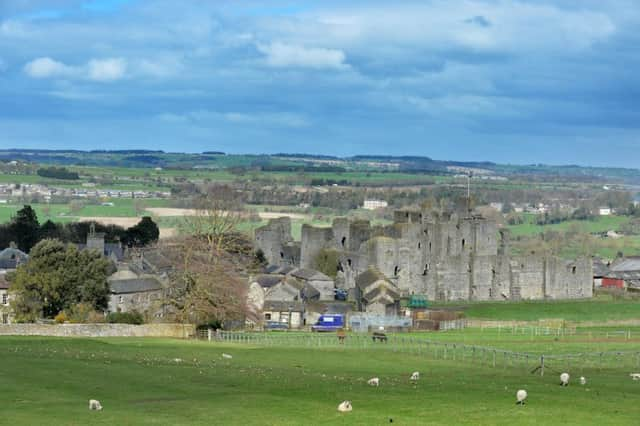Greg Wright: Things Richard III could teach us about creating a Northern Powerhouse


With much fanfare, the Government is establishing a new Northern Powerhouse project which it believes will shift the North’s economy into overdrive.
Northern Powerhouse Minister Jake Berry says it will give Northern businesses the chance to speak with one voice for the first time since 1472, when King Edward IV - the affable 15th century answer to Gareth Southgate – established a Council of the North to ensure England’s nobility upheld the law and behaved like team players.
Advertisement
Hide AdAdvertisement
Hide AdThe new council sounds an exciting concept. The board will be made up of the chairs of the 11 Local Enterprise Partnerships in the North of England and it will report to the Government every quarter. Using their in-depth local knowledge, the board will advise the Government on how to boost productivity and reduce the North –South divide.
The body’s official title – “NP11”- may not set the pulse racing, but it certainly deserves an opportunity to see if it can make a difference.
It’s worth noting, however, that another body, the Northern Powerhouse Partnership (NPP) was founded in 2016 with the aim of encouraging cities and counties across the North to work together.
Chaired by the former Chancellor George Osborne, the NPP’s official goal is “to encourage new policy ideas which will improve the North’s quality of life and economy, and promote it as a place to work, study, live and invest”.
Advertisement
Hide AdAdvertisement
Hide AdThese aims are very similar to the objectives of the new Council for the North. Hopefully members of NPP’s business-led board will pick up the phone and speak to their counterparts on this new body.
But what about the original Council of the North? Can we learn from its successes and failures? We may feel some sympathy with the plight of 15th century northerners. Edward IV established the council because the North had suffered from centuries of neglect, largely because it was far away from the seat of power.
And who did he choose to preside over the council to bring order in troubled times? His loyal brother – Richard, Duke of Gloucester, who would later become King Richard III; the ultimate insider.
Today, Richard is one of the most controversial figures in British history. Critics regard him as a usurper who murdered his nephews to clear a path to the throne. His defenders believe he should be regarded as a far-sighted monarch whose reputation was almost destroyed by the Tudor propaganda machine.
Advertisement
Hide AdAdvertisement
Hide AdBut, in the context of the formation of the Council of the North, we must remember that Richard had good local knowledge – he spent much of his early life in Yorkshire – and a strong national profile.
He could petition the King directly to get what he wanted for the North of England.
The “council” was dominated by a leader who knew how to use what we today term “soft power”; the ability to persuade without coercion, a testament to this is the number of retainers who refused to abandon Richard at the Battle of Bosworth, when his cause was lost.
Today, a single tweet from Richard would have sent a thousand courtiers scurrying. These observations are relevant to the new Council of the North because they show that nothing is more important than leadership; you still need a single, charismatic figure to drive through change.
Advertisement
Hide AdAdvertisement
Hide AdThe original council, which was shaped by Richard’s belief in strong governance, was a formidable body. It was his greatest achievement, upholding the interests of the North and its people for almost 170 years, until it was swept away by the civil war. It should be a source of inspiration to those who seek to ensure that the new look Council of the North really does deliver lasting economic change in our region.